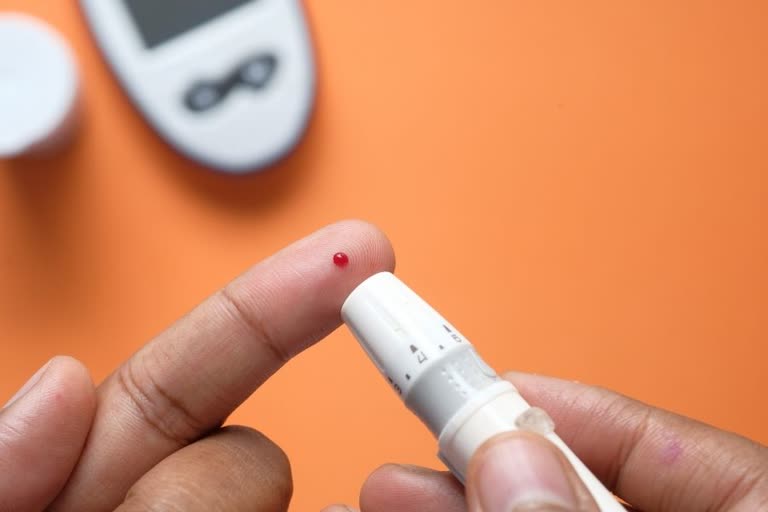Studies have shown that the human pancreas can also be a target of the SARS-CoV-2 (severe acute respiratory syndrome coronavirus type 2 viruses). Following a COVID-19 infection, reduced numbers of insulin secretory granules in beta cells and impaired glucose-stimulated insulin secretion have been observed. In addition, after the COVID-19 disease, some patients developed insulin resistance and had elevated blood glucose levels although they had no previous history of diabetes.
SARS-CoV-2 infection may lead to a strong release of pro-inflammatory signalling substances (cytokines). Activation of the immune system may persist for months after a SARS-CoV-2 infection and impair insulin effectiveness (muscle, fat cells, liver). To date, however, it was unclear whether these metabolic changes are transient or whether COVID-19 disease increases the risk of persisting diabetes. To investigate this question, researchers from the German Diabetes Center (DDZ), German Center for Diabetes Research (DZD) and IQVIA (Frankfurt) conducted a retrospective cohort study.
The cohort study included a representative panel of 1,171 physician practices across Germany (March 2020 to January 2021: 8.8 million patients). Follow-up continued until July 2021. "The aim of our study was to investigate the incidence of diabetes after infection with SARS-CoV-2," said first author Wolfgang Rathmann, head of the Epidemiology Research Group at the DDZ. As a control group, the researchers selected people with acute upper respiratory tract infections (AURI), which are also frequently caused by viruses. The two cohorts were matched for sex, age, health insurance, the month of COVID-19 or AURI diagnosis, and comorbidities (obesity, hypertension, high cholesterol, heart attack, stroke). Patients on corticosteroid therapy were excluded from the study.
During the study period, 35,865 people were diagnosed with COVID-19. "Our analysis showed that patients with COVID-19 developed type 2 diabetes more frequently than people with AURI. The incidence of diabetes with COVID-19 infection was 15.8 compared to 12.3 per 1000 people per year with AURI. The statistical analysis resulted in an incidence rate ratio (IRR) of 1.28. Put simply, this means that the relative risk of developing type 2 diabetes was 28 percent higher in the COVID-19 group than in the AURI group," Rathmann said, summarized the results.
Although type 2 diabetes is unlikely to be a problem for the vast majority of people with mild COVID-19 disease, the authors recommend that anyone who has recovered from COVID-19 be alert to the warning signs and symptoms, such as fatigue, frequent urination and increased thirst and seek immediate treatment.
(ANI)
Also read: Omicron infection linked with common respiratory illness in children: Study



